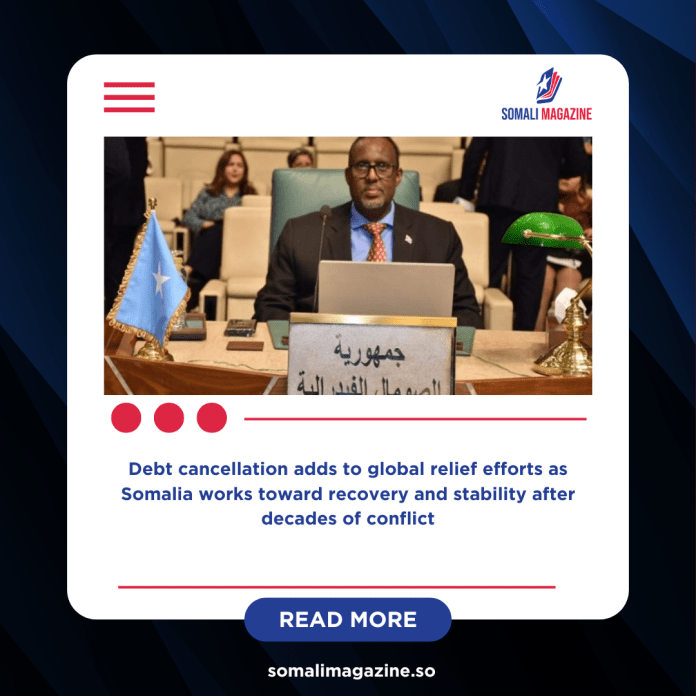Facebook Twitter (X) Instagram Somali Magazine - People's Magazine
Somalia has scored a major breakthrough in its long struggle with debt after the Arab League agreed to cancel 75 percent of what the country owed in unpaid annual membership contributions. The decision, which came during the League’s 164th session of permanent representatives in Cairo, was described by Somali officials as a historic achievement that highlights the importance of strong diplomacy and regional solidarity.
Somali Ambassador to Egypt and Permanent Representative to the Arab League, Ali Abdi Aware, welcomed the outcome, calling it a moment that reflects both Somalia’s resilience and the willingness of Arab nations to stand with the country during a difficult period. He thanked member states for supporting Mogadishu’s request and emphasized that the success was the result of sustained diplomatic efforts by the Somali Embassy in Cairo, carried out under the guidance of Somalia’s national leadership.
Although officials did not disclose the exact amount Somalia owed in unpaid contributions, the financial burden had built up for nearly four decades, ever since the country faced political turmoil, state collapse, and prolonged conflict that left the government unable to keep up with international financial obligations. Somalia has been a member of the Arab League since 1974, joining fourteen years after gaining independence. Over the years, the debt piled up, symbolizing not only financial strain but also the broader struggles of a country trying to recover from instability.
This latest debt cancellation adds to a series of steps taken by international partners to ease Somalia’s financial challenges and support its economic recovery. In 2024, the Paris Club, a group of major creditor nations that includes the United States, United Kingdom, Russia, Norway, and Japan, announced that it was writing off 99 percent of Somalia’s $2 billion debt. That decision was hailed as a critical turning point for Somalia, which has endured more than three decades of civil conflict, insecurity, and economic collapse.
The Paris Club’s move came through a mix of voluntary bilateral agreements by individual countries and structured relief under the Heavily Indebted Poor Countries Initiative, an international framework run by the International Monetary Fund (IMF) and the World Bank. That program is designed to help heavily indebted nations find a path toward sustainable growth by reducing their debt burden to manageable levels. For Somalia, the relief meant not only fewer financial liabilities but also an opportunity to rebuild trust with global lenders, attract investment, and focus resources on domestic development.
Now, the Arab League’s decision marks another important step in Somalia’s journey. By forgiving three-quarters of its arrears, the League has shown that regional organizations can play a meaningful role in supporting member states during times of difficulty. For Mogadishu, the move reduces financial pressure and allows the government to focus on pressing priorities such as security, infrastructure, and rebuilding institutions that were weakened or destroyed during decades of instability.
Debt relief has been a central part of Somalia’s foreign policy in recent years, as leaders understand that economic stability is tied closely to peace and security. Without the weight of debt holding back development, the government hopes to create more opportunities for growth, job creation, and better services for its citizens. Although challenges remain, the progress with both the Paris Club and now the Arab League demonstrates that the world is increasingly willing to support Somalia as it works to recover from its troubled past.
For ordinary Somalis, such decisions may seem distant, but their impact is significant. When a country spends less on debt repayments, it can dedicate more resources to health care, education, infrastructure, and other essential services that improve everyday life. The Arab League’s gesture, therefore, is not only about balancing financial books but also about helping Somalia move toward a future where its people can experience greater stability and opportunity.
The cancellation of 75 percent of Somalia’s debts to the Arab League is a reminder that cooperation and diplomacy can bring tangible results. With continued support from regional allies and international creditors, Somalia now has a stronger foundation to push forward with its economic recovery and national rebuilding efforts.

